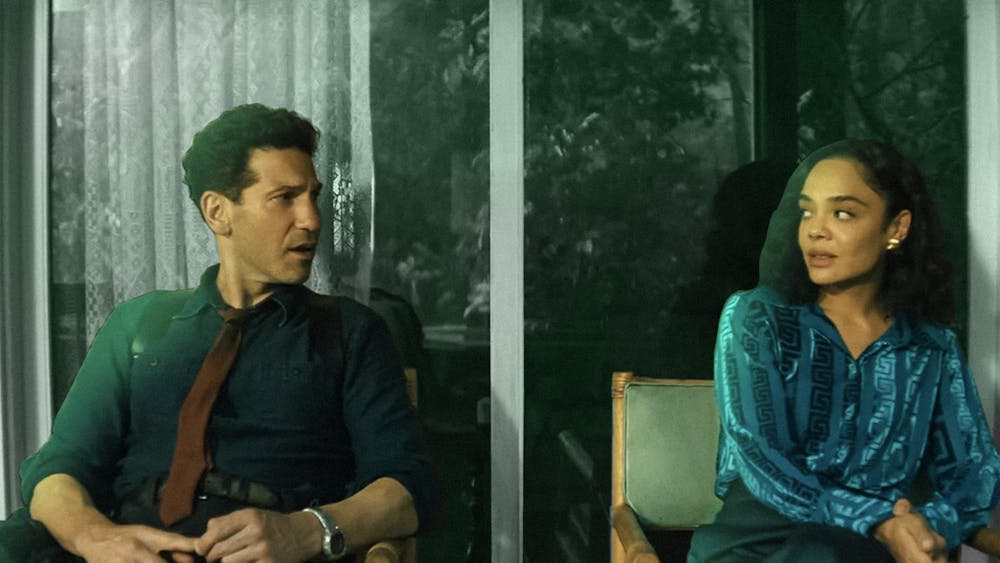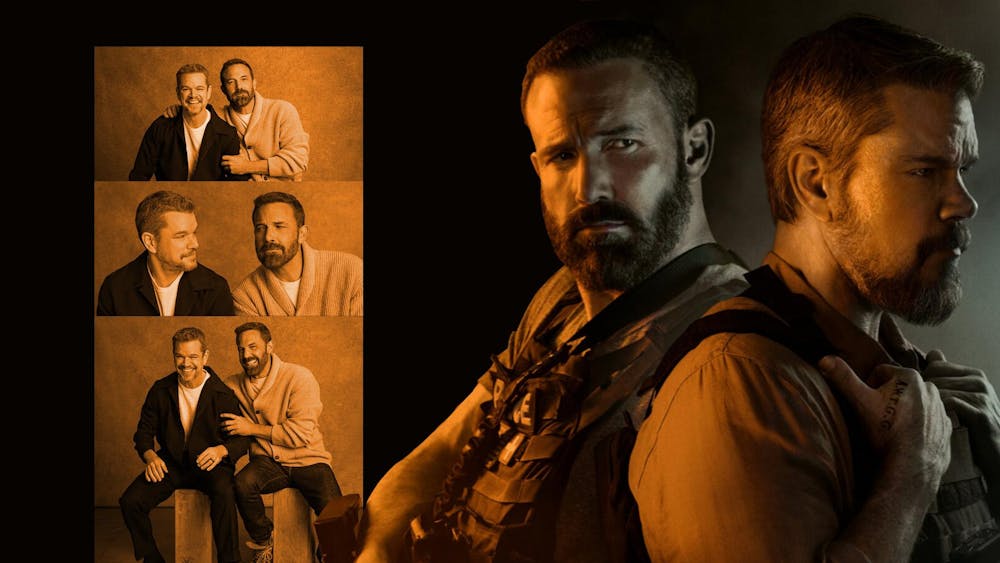
Philosophy asks the tough questions: What does it mean to live a good life? How can I be a good person? What do I do if I see a runaway trolley moving toward five tied-up people and I have the power to save those five at the expense of one?
But you’re in luck. TV has the answers. Sort of.
Monday, the first question moderator Peter Holland, associate dean of the arts, posed to Mike Schur, creator of “The Good Place” and “Parks and Recreation,” and his fellow panelists, Meghan Sullivan, professor of philosophy and director of the God and the Good Life Program, and Christine Becker, associate professor of film, television and theatre, was the one that headlined the event: Can Television Make Us Better People?
In response, Schur gave the honest — though probably hard to hear for any moral philosophers in the audience — answer that “if television can’t make us better people, then nothing can.”
And he’s right. Schur went on to support his claim with the fact that there is nothing Americans engage with more than television. Over 39 million people alone watched the pilot episode of “The Good Place.”
“If television has no impact, we’re screwed,” Schur said.
Yet, according to moral philosophers, you can’t try to be a better person. To paraphrase Schur: We’re already screwed; it’s not possible. This, at least, is what he was told by Pamela Hieronymi, a professor of philosophy at the University of California at Los Angeles and current consultant on “The Good Place,” when he approached her with the idea for the show.
Pressing the established professor, Schur remembers asking Hieronymi if there wasn’t just one philosopher who believed that we could try to be better people. Her response: Yes, just one. Aristotle.
That was enough for Schur. He continued his deep dive into the history of moral philosophy and his desire to, in his words, take a “big swing” with his chance to produce a guaranteed season of television.
Schur felt the obligation to make something meaningful because, as all three panelists acknowledged, television easily has the power to make you a worse person.
As if to prove his point about the downsides of television, much to Schur’s dismay, the audience-directed portion of the evening veered from the “The Good Place” and moral philosophy to Schur’s role as Dwight’s cousin, Mose, on “The Office.” Devastated that this role will be his lasting legacy — even if he “cures esophageal cancer” — Schur reluctantly told the story of the fraternity-like hazing that resulted in his playing the part.
The night, however, took its most unexpected turn at the very end. After the discussion had finished and the panelists were thanked, the event’s organizers took over. They had a surprise for Schur.
Projected onto the screen was a clip from season three, episode 16 of “Parks and Recreation.” Fans of the show immediately knew where this was going. When Ron Swanson said, “Son, this horse has an honorary degree from Notre Dame,” everyone knew where this was going.
Li’l Sebastian finally received his honorary degree from the University of Notre Dame and the DeBartolo Performing Arts Center now has a popcorn machine dedicated to the famous horse.
Welcome! Everything is fine. Television makes us better people.
Cristina Interiano | The Observ
Cristina Interiano | The Observ









